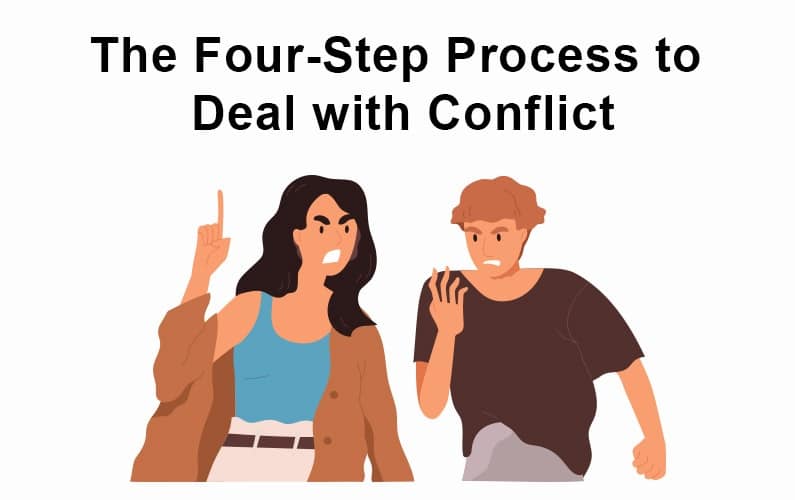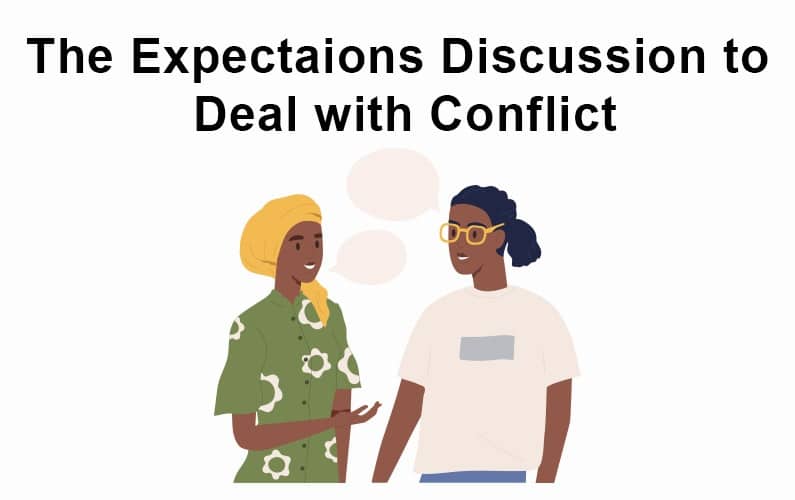Learn to See Conflict as Opportunity
So, let me ask, are you a glass-half-full or glass-half-empty kind of person? I’ll admit that I’m a glass-half-full kind of person. Why does it matter? Well, a 2019 study of 2,000 Americans found that people who view a glass as half full not only think more optimistically but line up with personality traits that include decisiveness, playfulness, and creativity.
That means, glass-half-full kind of people will find it easier to see anger, and deal with conflict created by it, as an opportunity. But don’t worry, even if you’re a glass-half-empty person, you can too. It just might take a bit longer to get used to the mental shift.
Think back to the last time you were infuriated at something and stayed that way. The rush of adrenaline kicking in … the intense focus on the issue … muscles tightening.
For some, that feeling can be a real high. For others, it can be scary to lose control.
Two Simple Techniques Create Opportunity
When I’m about to yell something I’ll probably regret, I remember it’s time to count to 10, take a deep breath, engage my brain, and use this as an opportunity to really understand the issue and strengthen my relationship with my partner, my kids, or other members of my family.
If counting to 10 and taking a deep breath doesn’t buy me enough time to calm myself down, sometimes I have to say, “Can we talk about this later?”
When everyone is calm, there are two simple techniques to deal with conflict as opportunities. First is the Four-Step Process. The second is the Expectations Discussion.
Regardless of which one you use, you have to be in the right frame of mind (i.e., relaxed and ready to listen and hear with your blood pressure back down and adrenaline levels normal). So count to 10 or ask to talk about it later and take a walk or a drive to settle yourself.
The Four-Step Process to Deal with Conflict
- Change the tone of the discussion and ask what the issue is. Share your thoughts and feelings, and get feedback from your partner or child on what’s going through their mind. Ensure everyone gets their voice and feelings heard around the issue.
- Brainstorm possible solutions, and choose one that all parties can agree on. Avoid the temptation to be judgmental or throw any ideas off the table.
- Agree on a specific action, timeline, and consequence if the agreement is not met by either party.
- Hold each other accountable. As a parent dealing with a child, know that the action and timeline will probably not be met. Follow through with your part of the agreement by holding the child accountable.
The Four-Step Process is my first choice to deal with conflict as an opportunity because it’s easy to remember and easy to follow.
Remember, turning frustration into an opportunity always requires a willingness of those involved to want to work it out.
The Expectations Discussion to Deal with Conflict
- Each person makes two lists. The first includes expectations you have of the other person. The second list includes expectations you think the other person has of you.
- Person 1 shares their lists with person 2. Person 2 can ask questions about what Person 1 means but cannot criticize, demean, or otherwise question the validity of the lists. Person 2 is allowed to respond in one of three ways: agree, agree in part, or disagree.
- Person 2 shares their lists with Person 1. The same rules apply to how Person 1 can respond.
- Let the conversation flow.
My experience is that the ensuing discussion is insightful for both parties and goes a long way toward strengthening how each sees the other and puts in place a foundation for long-term success.
Of course, there is also the possibility that there are enough expectations where agreement cannot be reached. If that happens in nonfamily situations, the two parties may part ways. But if that happens, there is a clear understanding of why.
Taking Control of Our Anger
In our Community Membership program, we’ve shared six things parents must do to prepare kids to deal with conflict. With these habits in place, you can make sure the Four-Step Process and Expectations Discussion become second nature.
Join the membership program here to gain access to the member-exclusive insights plus our ever-growing archive of weekly lessons and monthly videos on all-things Family Team Building.
So even though anger is a natural human emotion, it doesn’t have to be all-consuming and ruin our relationships. As long as we remember the two techniques, the four-step process and expectations discussion, we’ll be able to deal with any conflict that comes our way.
What To Do Next
1. Read more in the blog:
The Family Wisdom Blog shares valuable ideas across diverse topics.
2. Explore the Printables Library:
Our printables library is filled with must-have activity ideas, checklists, guides, and workbooks.
3. Subscribe to Our Newsletter:
Sign up for our newsletter for parenting tips to help you create the family team you've always wanted.
Rick Stephens
Rick Stephens is a co-founder of Raising Families. With 33 years of experience as a top-level executive at The Boeing Company and having raised four children of his own, he is able to support parents and grandparents by incorporating his knowledge of business, leadership, and complex systems into the family setting.
In his free time Rick enjoys road biking, scuba diving, visiting his grandkids, and generally trying to figure out which time zone he’s in this week. Read full bio >>







